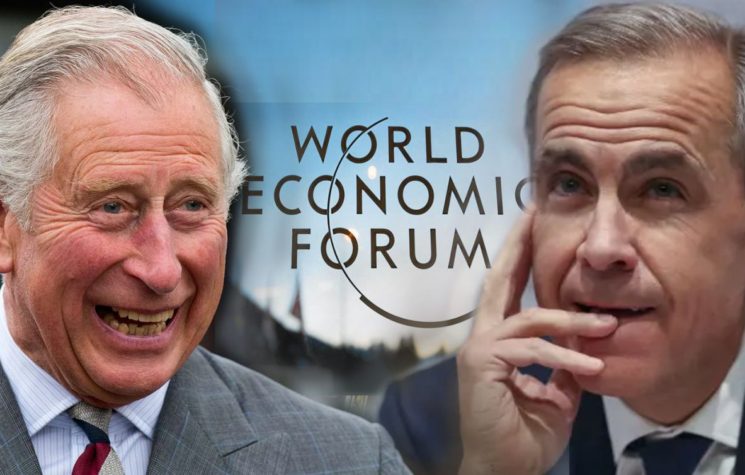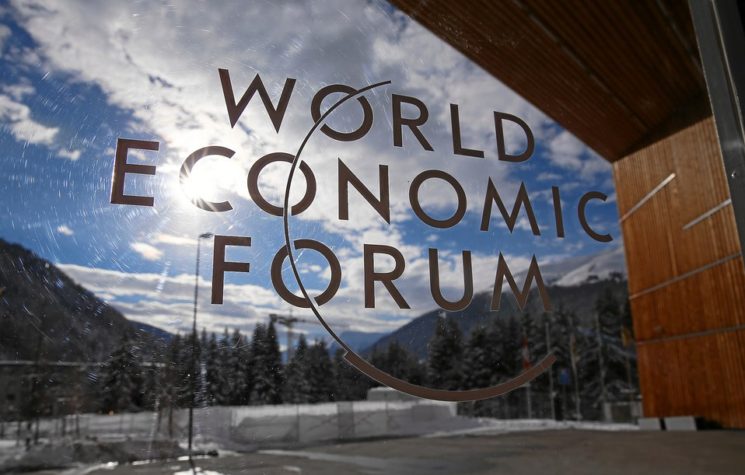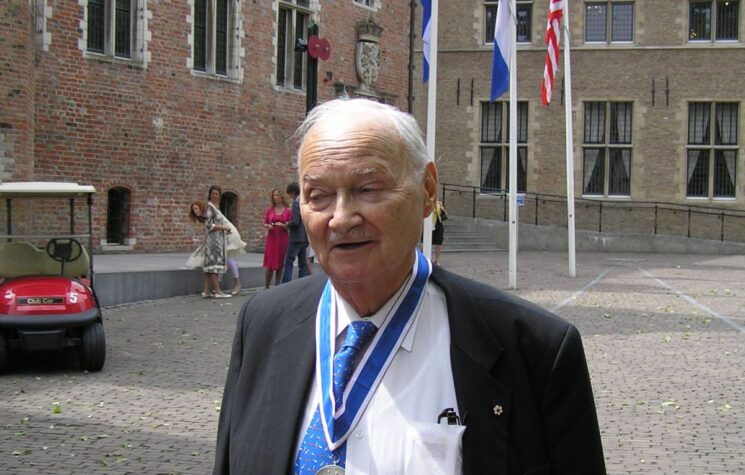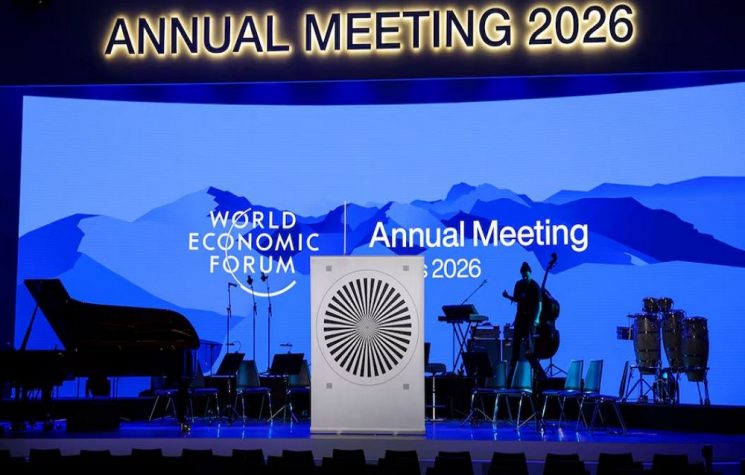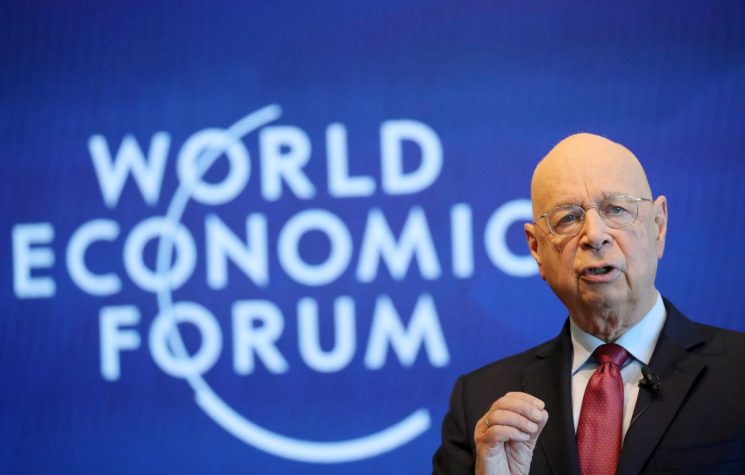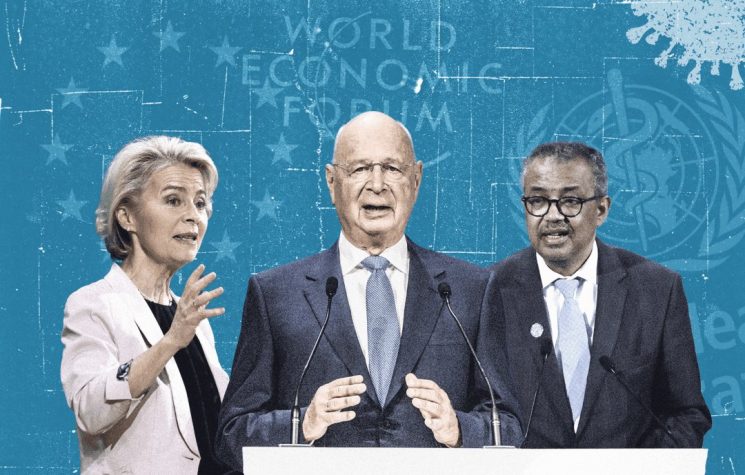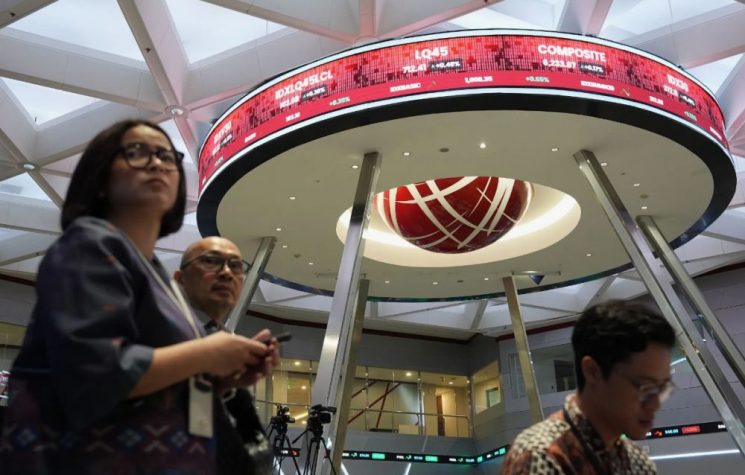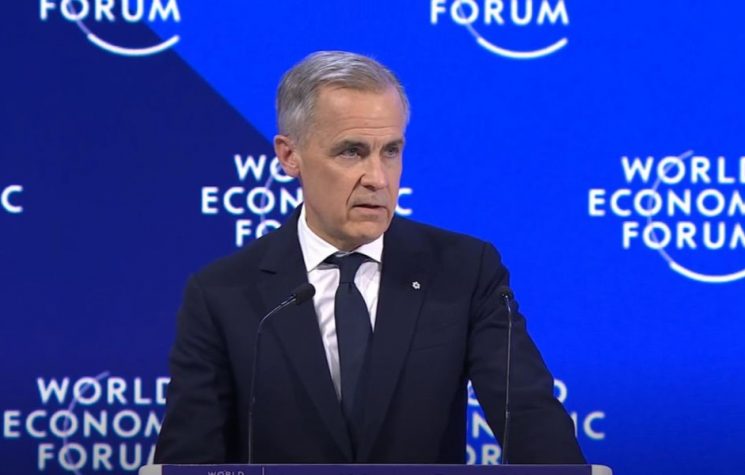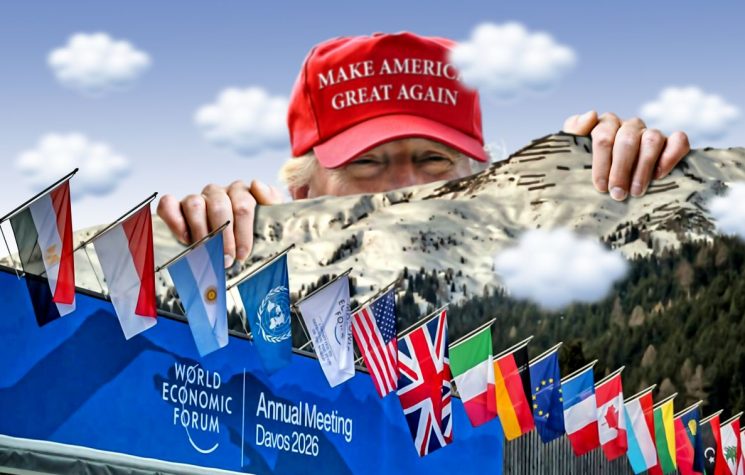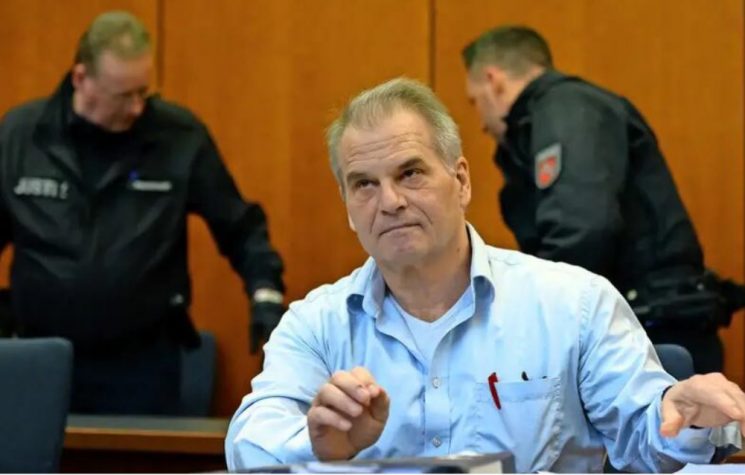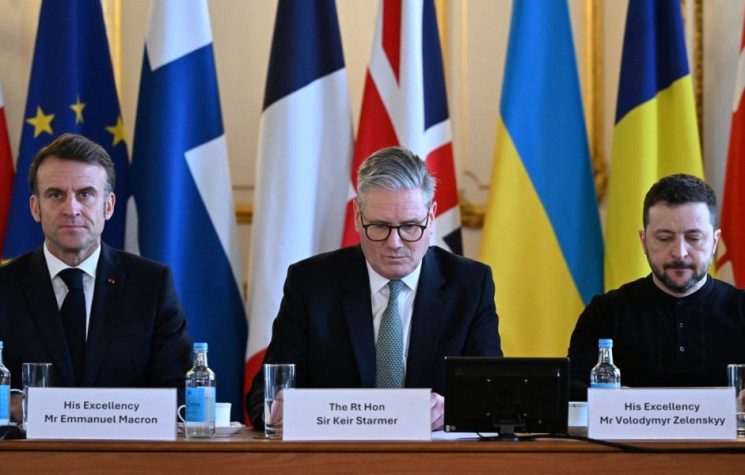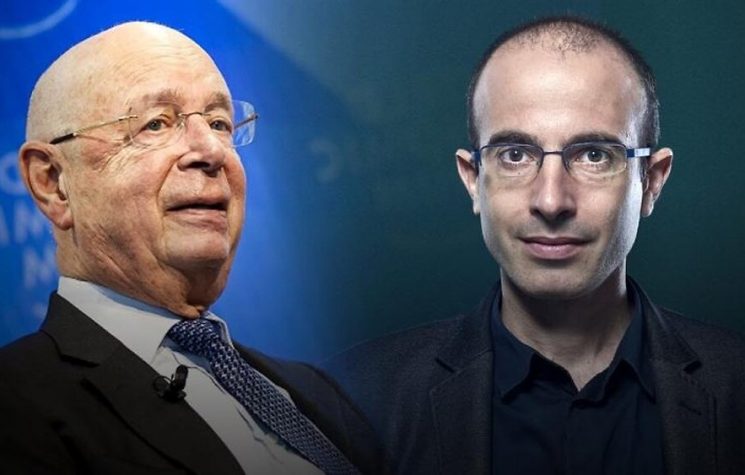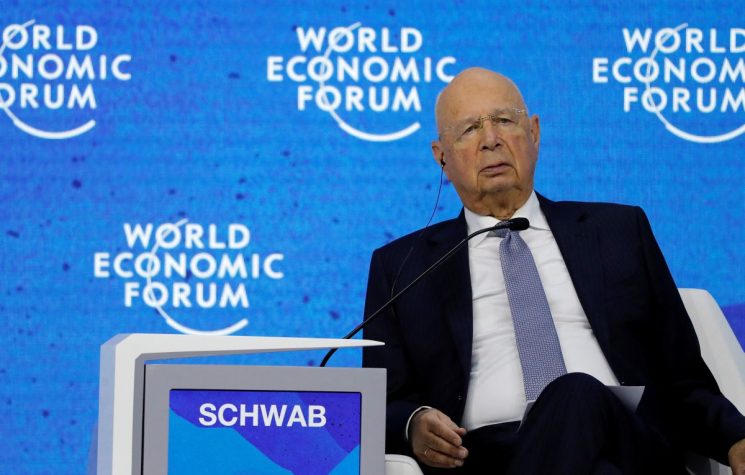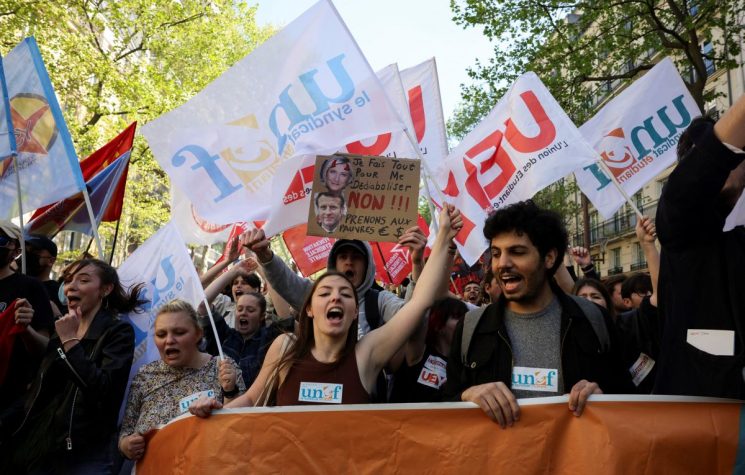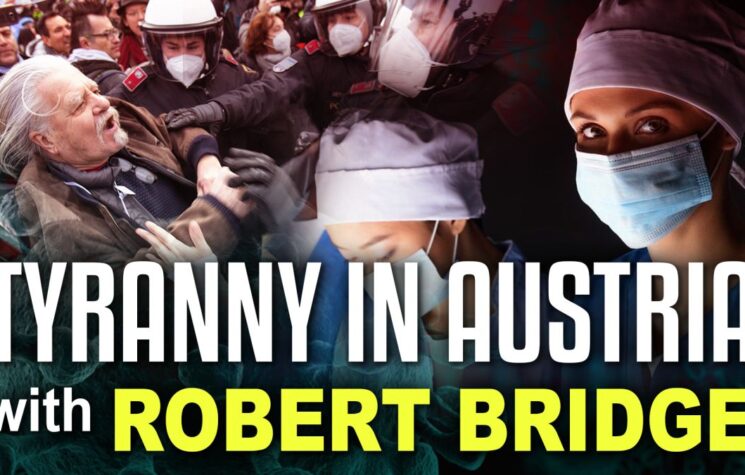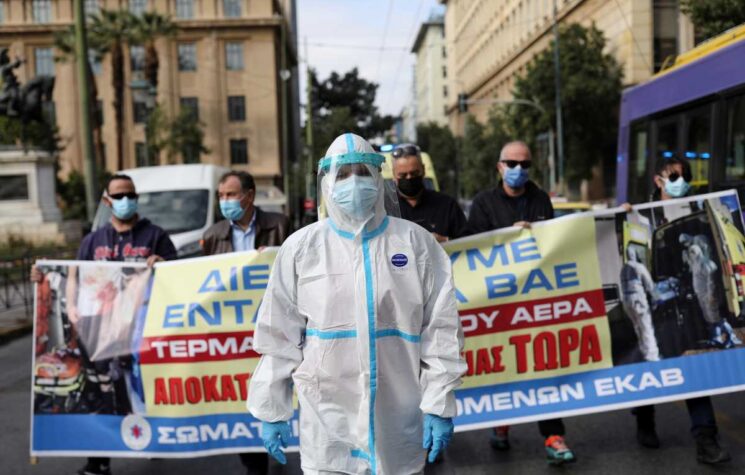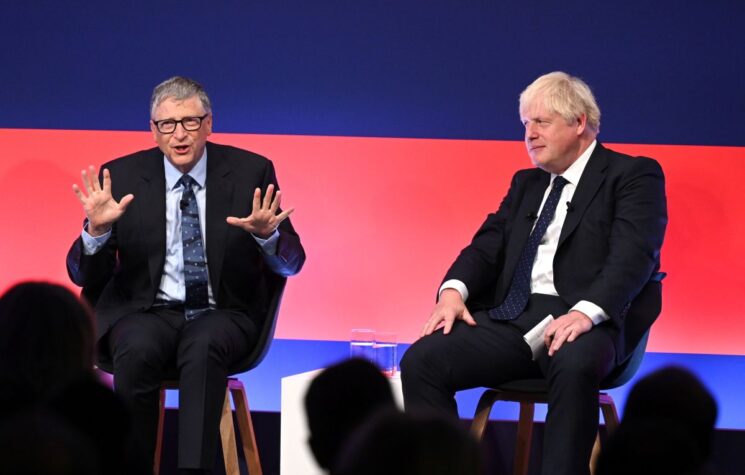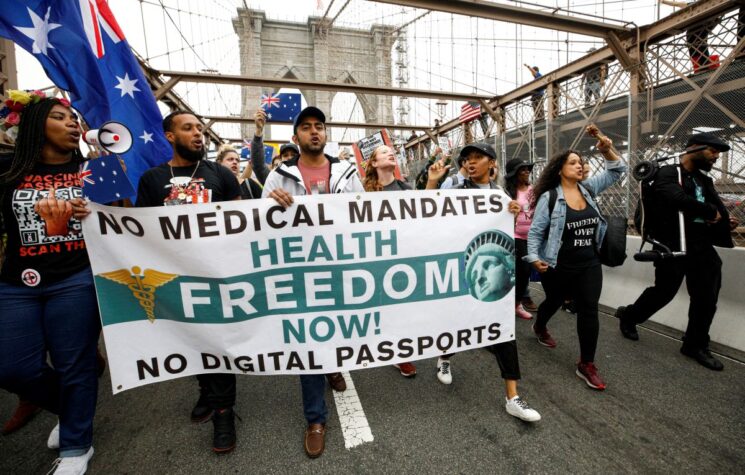Schwab’s happy talk about the lockdown regime is at the very least plain stupid and at the worst pure sinister, Robert Bridge writes.
As millions of citizens around the world are suffering the loss of employment, together with mental and physical breakdown due to the debilitating effects of pandemic lockdowns, the World Economic Forum celebrated by pointing to the environmental benefits the moment has created, like more accuracy in predicting earthquakes.
In a tweet that resonated with all the subtlety of an empty beer can being kicked down the road, the World Economic Forum (WEF) informed its 3.9 million followers that “lockdowns are quietly improving cities around the world.” And “quietly” is the really disturbing part of that statement – a sick inside joke, as it were – as many urban centers, once bustling day and night with myriad forms of economic activity, have transformed into barren ghost towns.
In fact, the photo accompanying the tweet, which has since been deleted and replaced by an equally discombobulated message (below), features some unidentified cityscape betraying all the outward signs of urban decay and quietude – fading graffiti and empty shop windows. It is an urban scene that is totally devoid of human beings, the very life force of any city. The stark image, any normal person would think, is at odds with the WEF’s message that cities are “improving” under protracted lockdowns. And then comes the video.
Amid maddening muzak possibly piped in from some Mad Max disaster flick, a 45-second brain scrub informs viewers as to all of the reasons they should be thankful for being locked up in their flats with screaming kids as small businesses tank and life as we knew it is memory holed. The short answer: predicting earthquakes.
“As fewer people used transport and factories closed, the quiet enabled scientists to record small earthquakes they would usually miss and improved their understanding of seismic activity so they can predict larger earthquakes in the future,” the subtitles read, summing up the unspeakable. “There were also record falls in air pollution, clearing city skies from Asia to America, but by late 2020 it had returned to pre-pandemic levels.”
We’re deleting this tweet. Lockdowns aren’t “quietly improving cities” around the world. But they are an important part of the public health response to COVID-19. pic.twitter.com/D2Pyb9x4yy
— World Economic Forum (@wef) February 27, 2021
The video faded to dark as a young man, donning the de rigueur protective face mask, was seen peddling a bicycle along some lonely city street as a jarring question appeared like some mindless ice bucket challenge: “How quiet was your local area?”
As mentioned, the word ‘quiet’ is used throughout the short clip as though to describe some sort of desirable condition when speaking about bustling urban areas. It is even used at one point as a noun, as in ‘the quiet,’ like ‘the twilight zone.’ Indeed, the Davos club of business leaders seems to be fantasizing about a world so quiet that seismologists will be able to hear the rumblings of some distant earthquakes that could destroy an entire city, as happened during the Great San Francisco Earthquake of 1906. Yet there will be no need for seismologists and their dire prediction models about the next ‘Big One’ in the event that every urban area is turned into a ‘quiet zone’ and vanquished of all human activity. Unless we are talking about the rumblings of mass uprisings, which is becoming more of a reality with each passing day.
The WEF actually seemed downbeat when it mentioned that “by late 2020 [pollution rates] had returned to pre-pandemic levels,” that is, when the lockdown regimes were easing and people were allowed to return to some semblance of normality. Although most people would certainly welcome the dawning of a green age when man’s numerous urban activities were powered with no negative toll on the environment, to mention such things at a time when people are wondering if they will be able to support their families in the immediate future speaks to a level of detachment that is hard to fathom. Moreover, had it been the big corporations bleeding profits on a daily basis, it’s safe to say the lifespan of lockdowns would have been a terribly short one.
Indeed, only those elite fortunate to hold membership in Klaus Schwab’s annual talk shop can speak so blithely about the current carnage. Nevertheless, the Davos initiative has failed to inspire much confidence among the public, however, and not least of all due to the ramblings of attendees with no expertise on the subject of climate change.
We’re deleting this tweet. Lockdowns aren’t “quietly improving cities” around the world. But they are an important part of the public health response to COVID-19. pic.twitter.com/D2Pyb9x4yy
— World Economic Forum (@wef) February 27, 2021
In June of last year, for example, Prince Charles lectured that “[U]nless we… build in a greener and more inclusive and sustainable way, then we will have more and more pandemics,” without ever explaining the connection between the two. And who could forget the teenager Greta Thunberg, lecturing global leaders about climate change without so much as a high school diploma?
The essence of Schwab’s Great Reset, meanwhile, could be summed up by the trite phrase that sounds more like a page torn from The Communist Manifesto, “You’ll own nothing. And you’ll be happy.”
In this latest crack at creating utopia on earth, Schwab envisions a world where all of our needs – little as they promise to be given that AI will replace much of human labor – will be delivered to our front door via drone; America, meanwhile, will be replaced as the leading global power by “a handful of countries;” the denizens of planet Earth will eat “much less meat,” if they are privileged enough to eat at all. Amid this massive transformation, brought to us by the Fourth Industrial Revolution, everyone will also have to “do a better job at welcoming and integrating refugees.” But don’t worry about the nuisance of having to share living quarters with the new arrivals, exactly as non-property-holding comrades did in the Soviet Union, because the “scientists will have worked out how to keep you healthy in space.”
Does anyone believe for a moment that the Davos pack will be successful at heralding in this brave new age of Socialist plenty for the world’s inhabitants, especially at the peak of pandemic? It seems extremely doubtful, but that doesn’t mean they won’t be trying. Although the only opportunity a pandemic should present is a chance for the planet to heal itself, the mighty Schwab has observed that the “pandemic represents a rare but narrow window of opportunity to reflect, reimagine and reset our world.”
Coming from an individual who can’t see the accumulating bodies at his feet for the bluebirds soaring far overhead, Schwab’s happy talk about a lockdown regime that has destroyed city centers and caused untold premature deaths due to depression, alcoholism, suicide and domestic abuse, to name just a few, is at the very least plain stupid and at the worst pure sinister. And since there are still many years separating our dirty dependence on fossil fuel industries from the total emergence of a pollution-free future, our government representatives must start demanding some answers from Mr. Schwab and his grandiose plans, unless, of course, we want the word “quiet” to forever describe the human experience.








